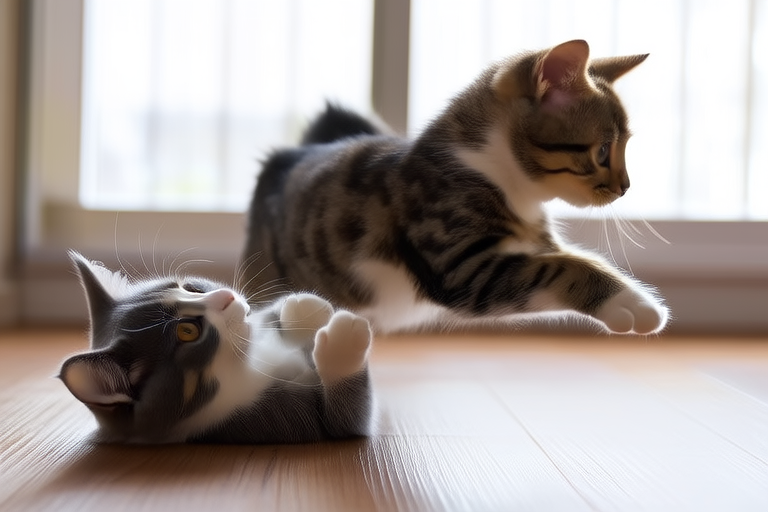Munchkin Cats – Mixing Playfulness with Short Legs
When it comes to feline companions, Munchkin cats stand out for their unique blend of playfulness and short legs. These adorable creatures have captured the hearts of many cat lovers around the world. In this article, we will explore the fascinating history, physical traits, common health issues, and essential tips for potential owners of Munchkin cats.
The History of Munchkin Cats
The story of Munchkin cats began in the early 1980s when a woman named Sandra Hochenedel discovered a small, stray cat with unusually short legs. She rescued the cat and named her Blackberry. Blackberry gave birth to kittens, some of which also had the same distinctive trait. Sandra recognized the uniqueness of these kittens and decided to breed them with other cats. Over time, the Munchkin breed was established.
Despite initial skepticism from the cat fancy community, Munchkins have gained popularity due to their charming personalities and endearing appearance. Today, they are recognized by various cat registries, including The International Cat Association (TICA).
Physical Traits of Munchkin Cats
Munchkin cats are easily identifiable by their short legs, which give them a unique, almost rabbit-like gait. Their bodies are typically medium-sized, with a well-proportioned and muscular build. Despite their shorter limbs, Munchkins are agile and surprisingly fast runners, thanks to their flexible spines and strong hindquarters.
These cats come in a variety of coat colors and patterns, making each Munchkin unique. They can have long or short hair, depending on their lineage. Their faces are usually rounded, with large, expressive eyes that add to their playful charm. One of my personal favorite things about Munchkins is how they interact with their environment; they seem to approach life with curiosity and enthusiasm, always ready for the next adventure.
The Playful Nature of Munchkin Cats
Munchkin cats are known for their high energy levels and love for play. They enjoy chasing toys, climbing, and exploring their surroundings. Their short legs don’t hinder their ability to jump; instead, they use their flexibility and strength to reach great heights. I once observed a Munchkin cat leap onto a shelf that seemed impossibly high for its size, demonstrating just how agile these little cats truly are.
One of the most delightful aspects of owning a Munchkin is witnessing their playful antics. They are social animals that thrive on interaction with their human companions. Munchkins often form strong bonds with their owners, seeking attention and affection throughout the day. Their playful nature makes them excellent companions for families and individuals alike.
Common Health Issues
While Munchkin cats are generally healthy, there are a few health concerns that potential owners should be aware of. Due to their genetic mutation, some Munchkins may experience skeletal problems, such as lordosis (an inward curvature of the spine) or pectus excavatum (a chest deformity). It’s important to choose a reputable breeder who prioritizes the health and well-being of their cats.
Another concern for Munchkin owners is the risk of respiratory issues. Some Munchkins may inherit flattened faces, similar to Persian cats, which can lead to breathing difficulties. Regular veterinary check-ups and maintaining a healthy weight are crucial for preventing these issues.
Tips for Potential Owners
If you’re considering adding a Munchkin to your family, here are some tips to ensure a happy and healthy life for both you and your new pet:
- Provide ample space: Munchkins are curious and active, so they need plenty of room to explore and play. Consider creating a safe, enclosed outdoor area if your home has a yard.
- Encourage exercise: Keep your Munchkin physically active to maintain a healthy weight and prevent boredom. Interactive toys, such as laser pointers or feather wands, can help stimulate their minds and bodies.
- Monitor their diet: Obesity can exacerbate skeletal issues, so it’s essential to feed your Munchkin a balanced diet and monitor their weight carefully.
- Schedule regular vet visits: Early detection and treatment of any health issues can improve your Munchkin’s quality of life. Establish a routine with your veterinarian to keep your cat healthy.
- Be patient: Like all cats, Munchkins have their own personalities and quirks. Be prepared to adapt to your new companion’s needs and preferences.
Conclusion
Munchkin cats are a joy to behold, combining playfulness with short legs in a way that captures the hearts of cat lovers everywhere. Their unique history, physical traits, and playful nature make them an ideal choice for families and individuals looking for a fun and loving companion. While there are some health considerations to be aware of, with proper care and attention, Munchkin cats can lead long, happy lives filled with adventure and affection.
Whether you’re a seasoned cat owner or considering adopting your first feline friend, a Munchkin could be the perfect addition to your household. Embrace the quirky charm and boundless energy of these delightful creatures, and prepare for a lifetime of laughter, love, and unforgettable moments.
